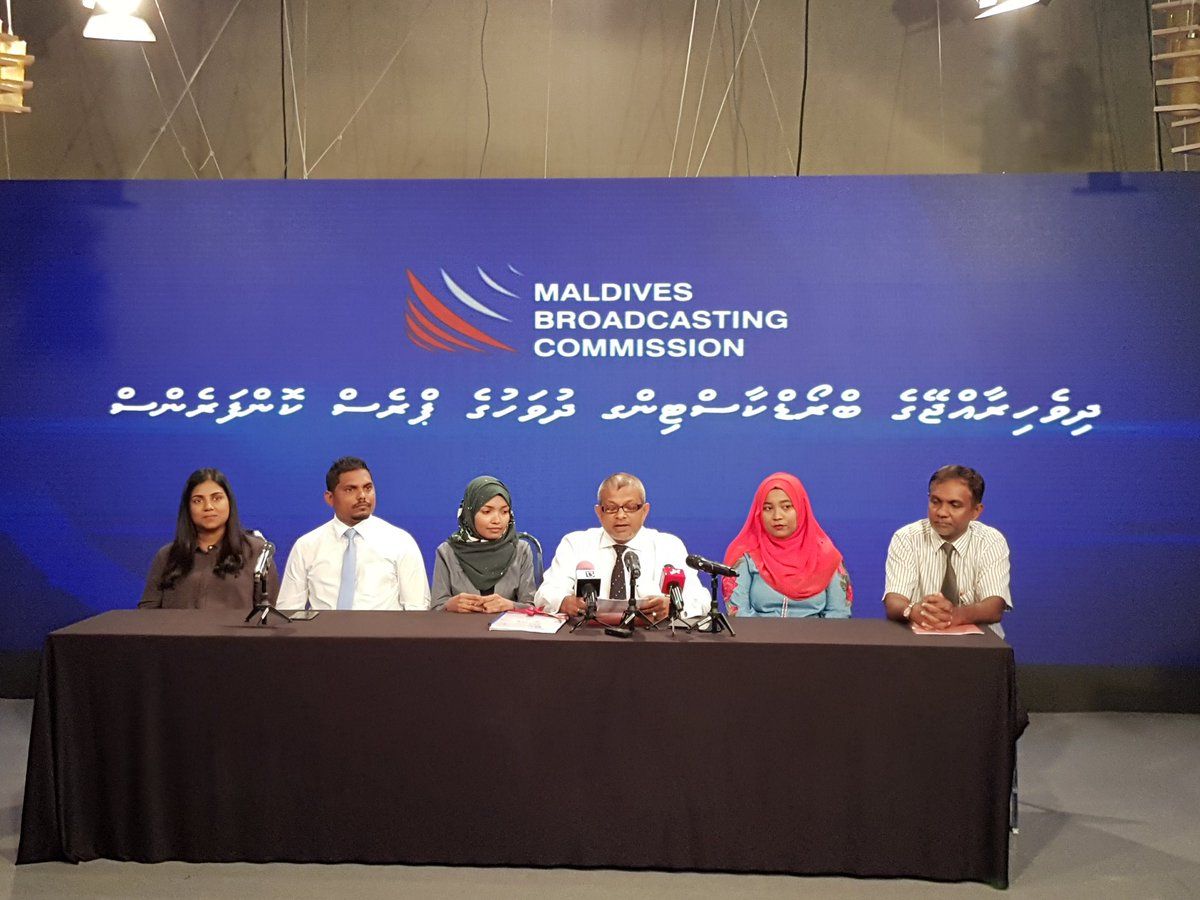Broadcasting regulator admits bias, rejects press freedom index
The watchdog’s president conceded bias in defamation inquiries initiated by his colleagues.

06 Oct 2018, 09:00
The president of the Maldives Broadcasting Commission on Thursday conceded bias in inquiries initiated by his colleagues.
Some inquiries were launched without complaints being submitted, Mohamed Shaheeb told the press, including one case that led to an MVR1 million (US$64,850) fine imposed on Raajje TV for airing a speech that was deemed defamatory towards President Abdulla Yameen.
Shaheeb admitted a lack of impartiality when asked why defamation of opposition figures by pro-government media went unpunished. Inquiries launched by MBC members should not have targeted a single broadcaster, he said.
“I’m saying no political figure exerted any influence over me in any matter,” Shaheeb insisted, deferring to other members on questions over their independence.
Become a member
Get full access to our archive and personalise your experience.
Already a member?
Discussion
No comments yet. Be the first to share your thoughts!
No comments yet. Be the first to join the conversation!
Join the Conversation
Sign in to share your thoughts under an alias and take part in the discussion. Independent journalism thrives on open, respectful debate — your voice matters.




